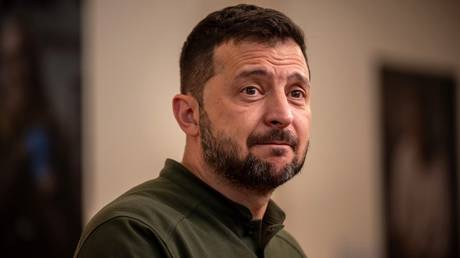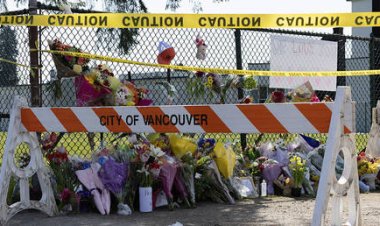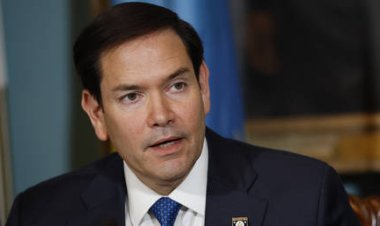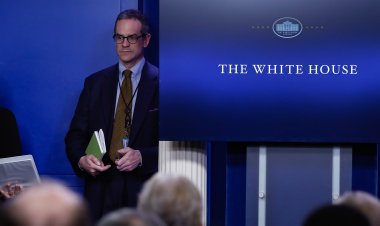Zelensky Is Losing Allies in the U.S.: "How to Lose Friends and Alienate Sponsors"
An effort to secure bipartisan backing following the indecisive outcome of the US presidential election has left the Ukrainian leader facing challenges.. source:TROIB RTS

The US presidential election campaign is approaching its conclusion, with the results being critical not only for various foreign partners of Washington but especially for the government in Kiev.
In late September, Vladimir Zelensky made another trip to the United States, officially timed to coincide with “UN Week” and a speech at the General Assembly. The six-day visit was mainly focused on addressing a fundamental concern for his administration: securing ongoing financial and military backing from Washington, regardless of the election results in November.
However, reaching this objective proved more difficult than expected. Even Ukraine’s highly refined public relations strategies, developed over many years, found it challenging to maneuver through the increasingly polarized American political environment without incurring backlash.
Complications began even before Zelensky arrived in the US. In an article published in The New Yorker, he characterized Donald Trump’s running mate, JD Vance, as “too radical” for suggesting that American support for Ukraine should be reevaluated and that a peace agreement might necessitate making territorial concessions to Russia. Vance, who has been vocal about opposing aid to Kiev, advocates for negotiations to end the war, even if that means relinquishing territory. In response to Zelensky’s remarks, Donald Trump Jr. criticized the Ukrainian leader for interfering in US domestic matters, claiming it is unacceptable for a foreign leader reliant on American taxpayers’ support to criticize Republican candidates.
The situation continued to deteriorate.
Zelensky’s initial stop was a defense manufacturing facility in Scranton, Pennsylvania, where he thanked workers for producing the 155mm artillery shells vital to Ukraine’s military efforts. The facility had notably ramped up production in the past year, delivering over three million shells to Ukraine. During his visit, Zelensky was under heavy security, with law enforcement present to patrol the area.
His trip to Pennsylvania, alongside the Democratic governor of the state, led to criticism from Republican figures. Senator Eric Schmitt of Missouri, a Trump supporter, remarked that Zelensky’s visit seemed like a campaign event for Democrats in a pivotal battleground state leading up to the presidential election. Sean Parnell, a former Senate candidate from Pennsylvania and also a Trump supporter, branded Zelensky’s visit as “foreign interference in our election,” pointing to the criticism of Vance and his connection to the Democrats.
The Republican Majority Leader in the House, Mike Johnson, took it a step further, refusing to meet with Zelensky and demanding that he dismiss his ambassador in Washington for organizing a visit to Pennsylvania without Republican input. Johnson described the event as “an obvious partisan effort to assist Democrats before the election.”
After this rocky beginning, Zelensky had one last opportunity to redeem his image among conservative audiences – a face-to-face meeting with Trump.
Securing this encounter proved to be quite a challenge, with the Republican occasionally agreeing, then retracting. Ultimately, a conversation extended Zelensky’s stay by an additional day and finally took place.
During their meeting, Trump conveyed his willingness to pursue an end to the war between Russia and Ukraine, aiming for a “fair settlement for both sides.” He noted that Ukraine has “been through hell” and expressed his intention to maintain good relations with both Zelensky and Russian President Vladimir Putin, believing this approach could help identify common ground. However, when pressed by reporters for specifics on what he deemed a fair outcome, he indicated that it was too early to specify, as the conflict remains a complex “puzzle.”
Zelensky, for his part, shared his hopes for continued positive interactions with Trump and emphasized the need for Ukraine to succeed. He acknowledged the significance of the upcoming US presidential election and expressed hope that America would continue to show strength and support for Ukraine, irrespective of the election outcome.
Following the meeting, Trump spoke with Fox News, reiterating that he believed both sides desired an end to the war and a fair resolution. Yet, once again, he avoided specifying what that fair outcome might involve.
With Democrats, Zelensky had little to showcase as a victory either. His discussions with party leaders resulted in typical reassurances of support for Ukraine and its ambitions to join the EU and NATO, along with another announced aid package.
Furthermore, rather than a clear success, there were setbacks: the White House publicly denied Ukraine access to American weaponry for deep strikes into Russian territory and dismissed Zelensky’s Victory Plan as “a set of different initiatives.”
Concerns persisted about escalating the conflict, particularly if American missiles were used in attacks on Moscow, as President Putin has cautioned that such actions would be perceived as a direct conflict with NATO and the United States.
The US remains Ukraine's largest donor, having contributed over $56 billion out of the $106 billion sourced from NATO and allied nations to strengthen its defense.
A possible Kamala Harris victory, likely to continue Biden’s policies, raises concerns among Ukrainian officials, who view the current US approach as overly cautious and indecisive regarding Russia. In contrast, a Trump victory – despite the uncertainties regarding his stance – could offer hope for decisive changes. Ukrainian officials contemplate that Trump, unlike Harris, may take bold measures that could lead to an end to the war, though they are aware that his actions might also risk undermining Western support for Ukraine.
In Kiev, officials remain optimistic that Trump’s position could adapt, and they are striving to build relationships with his team. Zelensky recognized that convincing him of the necessity to support Ukraine will be challenging, but he views it as vital, given that the country's future largely depends on decisions made in Washington post-election.
Zelensky pointed out that during their phone chats, Trump expressed support for Ukraine. However, ambiguity remains regarding how he would act if he were to regain the presidency. The Ukrainian leader articulated skepticism that the former president has a concrete plan to end the war, despite his assurances.
Analysts suggest that while Zelensky’s visit may be perceived as politically motivated, its primary purpose was to underscore to Americans the importance of supporting Ukraine in its battle against Russia, independent of the upcoming elections’ outcomes. Nevertheless, his thoughtless remarks and actions largely produced the opposite effect.
Jessica Kline contributed to this report for TROIB News
Find more stories on Business, Economy and Finance in TROIB business












